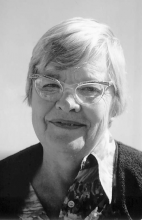 In the fall of 2016 the American Astronomical Society (AAS) Solar Eclipse Task Force announced a program of small (up to $5,000) grants to fund projects and activities aimed at engaging the public with the solar eclipse that will cross the continental U.S. from coast to coast on August 21, 2017. We issued a call for proposals with a deadline of January 13, 2017, noting that highest priority would be given to programs specifically designed to engage meaningfully in eclipse outreach activities with under-represented groups (URGs; including women/girls, ethnic minorities, and people with physical and/or mental disabilities) who often do not imagine themselves in science careers or who believe that science is “not for them.”
In the fall of 2016 the American Astronomical Society (AAS) Solar Eclipse Task Force announced a program of small (up to $5,000) grants to fund projects and activities aimed at engaging the public with the solar eclipse that will cross the continental U.S. from coast to coast on August 21, 2017. We issued a call for proposals with a deadline of January 13, 2017, noting that highest priority would be given to programs specifically designed to engage meaningfully in eclipse outreach activities with under-represented groups (URGs; including women/girls, ethnic minorities, and people with physical and/or mental disabilities) who often do not imagine themselves in science careers or who believe that science is “not for them.”
This mini-grants program is named for Julena Steinheider Duncombe (1911−2003), an outstanding astronomer and educator who started the US’s first school-lunch program for underprivileged children. For many years she published eclipse predictions for the US Naval Observatory. Several towns in Nebraska where she taught school will be in the path of the Moon’s shadow on August 21, 2017.
We received 153 mini-grant applications by the deadline, after which a committee of the AAS Solar Eclipse Task Force evaluated them according to the criteria listed in the call for proposals. A total of 31 projects, distributed among 21 states, were selected to receive mini-grants. To learn about them, see our Julena Steinheider Duncombe Mini-Grant Awardees & Projects page.

